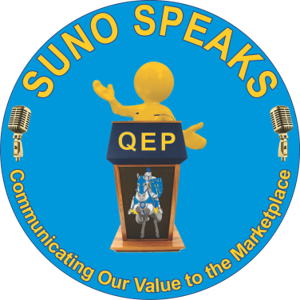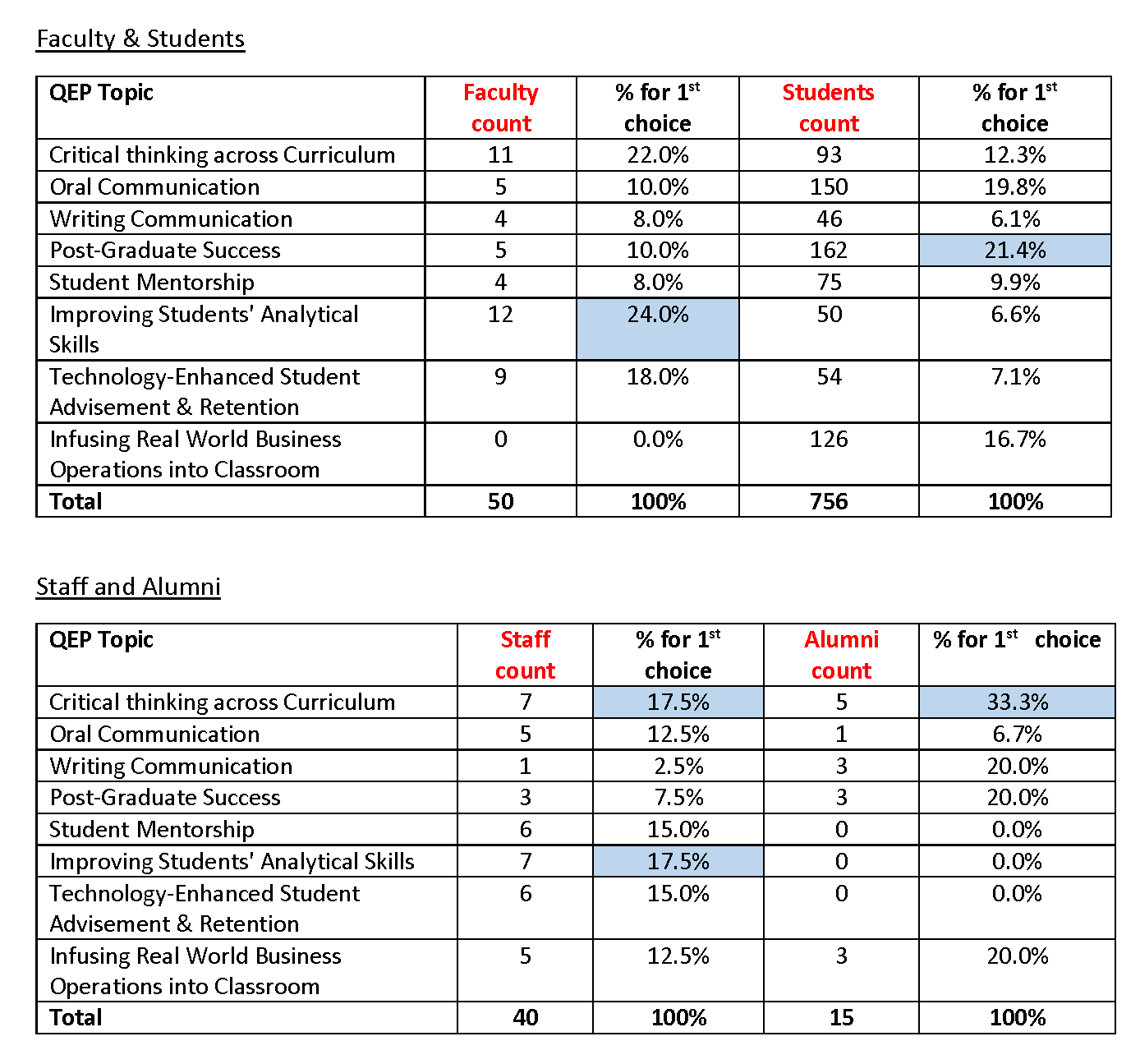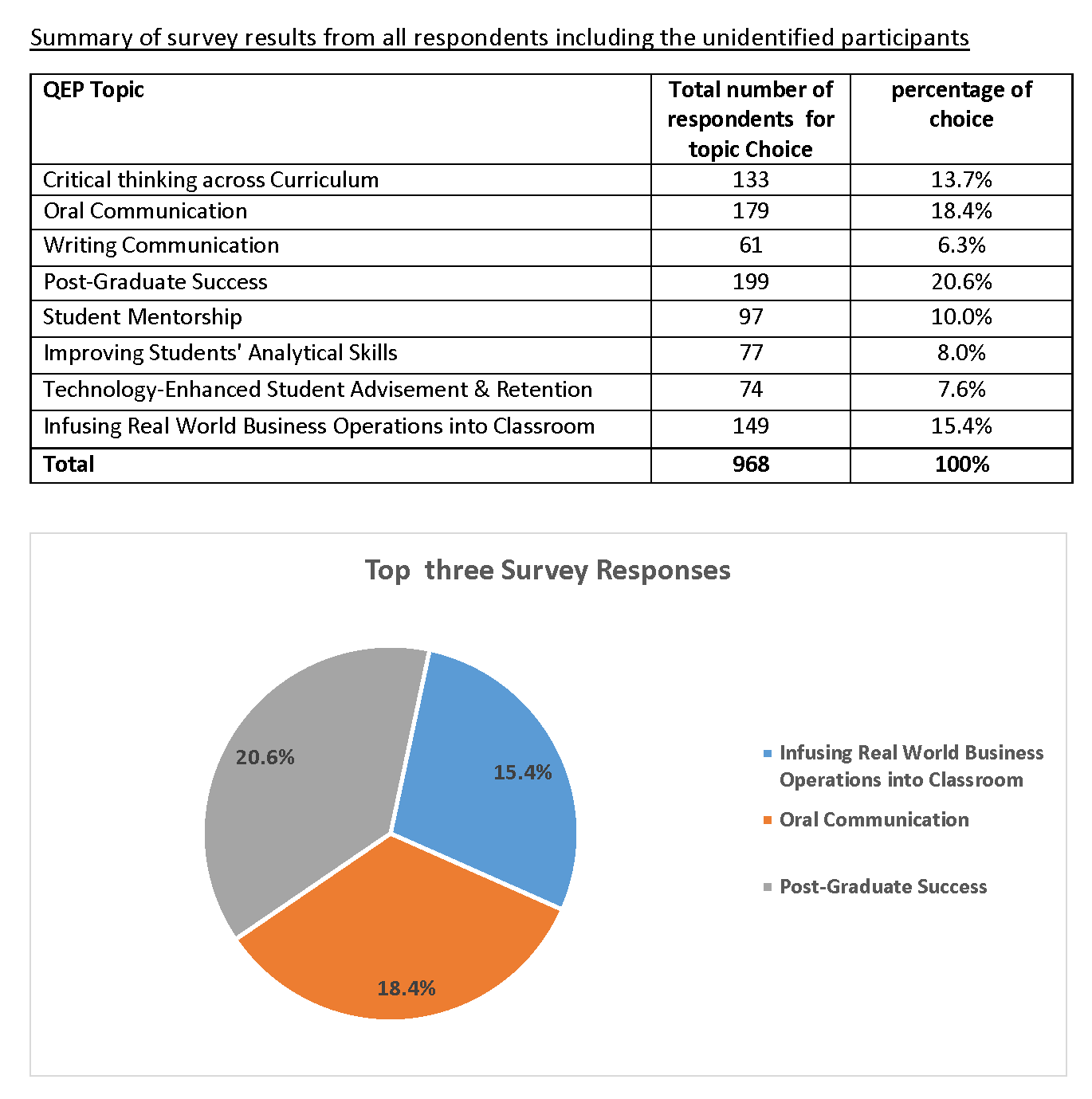Development

Topic Identification Process
The process used to identify a topic for SUNO QEP consisted of activities that allowed for the broad-based involvement of various University stakeholders and a review and analysis of existing assessment data as well as input from external consultants.
The process to develop SUNO QEP was initiated in September 2016 with an e-mail announcement from the QEP Interim director to key stakeholders (students, faculty, staff, administration, alumni, and the community) calling for proposals of a QEP topic in an area that they believe needed improvement across the University. In the end, there was a recorded list of twenty-five (25) proposed QEP topics. After review of the proposed QEP topics, the steering committee grouped them into eight themes and developed a survey that was administered both online and in paper format to University stakeholders.
Each respondent was asked to review a list of the eight (8) possible topics and rank from one (1) to eight (8) with one (1) being the most desired and eight (8) being the least desired of the QEP topics.
- Critical Thinking across Curriculum
- Oral Communication
- Writing Communication
- Post-Graduation Success
- Student Mentorship
- Improving Students’ Analytical Skill
- Technology Enhanced Student Advisement & Retention
- Infusing Real World Business Operations into the Classroom
Survey responses were collected from seven hundred fifty-six (756) students, fifty (50) faculty, forty (40) administration/staff members, fifteen (15) alumni and one hundred seven (107) unidentified participants. The results varied from the different stakeholders are shown below.


Assessment of Institutional Data
In addition to the above, the Steering Committee also examined data provided by the Office of Institutional Effectiveness on NSSE survey. Administered to first-year students and senior students every spring semester, responses for additional engagement items specifically to Student-perceived gains in how their experience at SUNO has contributed to their knowledge, skills, and personal development in speaking clearly and effectively. Results indicate that even though SUNO has contributed much to their experiences and knowledge in this area (see tables below), more still has to be done when compared to other Public LA Universities and Carnegie class.
NSSE Benchmarks, SUNO Compared to other Public LA Universities and Carnegie class
Question: How much has your experience at this institution contributed to your knowledge, skills, and personal development in speaking clearly and effectively?

Topic selection Process
The QEP Steering Committee met to discuss the three top responses from the stakeholder survey and considering which topic will have the most significant impact on improving the academic success of SUNO students. There were persuasive arguments in each of the issues: Post-Graduate Success, Oral Communication, and Infusing real-world business operations into the classroom. The chief argument in favor of Oral communication as the final QEP topic choice was that students’ shortcomings in oral and written communication were often due to weaknesses in their ability to formulate, support, analyze, or otherwise deal with arguments. The committee concluded that enhancing students’ Oral communication skills would undoubtedly improve their abilities in effectively presenting themselves and their ideas to potential employers thus leading to workplace success Post graduation.
Goal and Student Learning Outcomes
Goal:
The primary goal of the QEP is to enhance students’ Oral Communication skill for Career Success, with an emphasis on Public Speaking.
Expected Student Learning Outcomes
SLO #1: Demonstrate effective oral communication skills (organization, content, and delivery).
SLO #2: Confidently articulate career goals using discipline-specific terminology.
SLO #3: Practice oral communication skills through increased formal and informal opportunities including visual media.
Focus Group Meeting
Part 1 of 3
Part 2 of 3
Part 3 of 3
